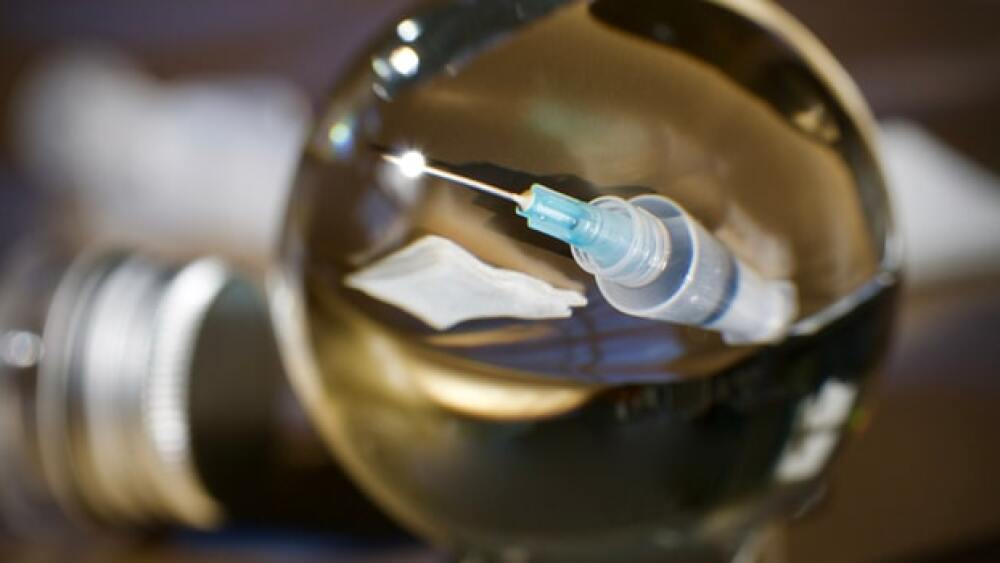In early August, Russia became the first country to approve a coronavirus vaccine.
In early August, Russia became the first country to approve a coronavirus vaccine. Developed in the Gamaleya Institute, the vaccine, Sputnik V, uses an adenoviral strategy. Viral vectors in the vaccine encode the novel coronavirus spike protein. This protein binds the ACE2 receptor on the outside of a cell. This interaction allows it to enter the cell, where it replicates.
The immune system is then able to prepare an immune response against this protein. The immune response would protect the host when exposed to COVID-19.
A second adenoviral vector was also prepared to further boost the immune response. This vaccine received approval for use before a Phase III trial. While other researchers are testing similar vaccine strategies, they are still not approved.
On September 4th, The Lancet published the results of Phase I and Phase II trials. The manuscript describes the results of Phase I and Phase II trials for the vaccine. Phase I trials assess safety within a population, while Phase II trials increase the sample of participants while measuring efficacy and safety. Without a Phase III trial, clinicians can’t determine if the vaccine is effective. Phase III trials also allow clinicians to monitor safety over a longer period of time. Although safety isn’t guaranteed in early trials, Russian President Vladimir Putin’s daughter took part.
The study also assessed different formulations of the vaccine. Often, preserving vaccines requires freezing them. Thus, their distribution requires refrigerated transport. Russian researchers prepared a lyophilized version of the vaccine. This preparation wouldn’t require refrigeration, allowing for quicker distribution.
This publication attracted criticism for potential discrepancies in the figures.
Study
In total, researchers split 76 participants between the two vaccine preparations.
38 participants took part in the Phase I/Phase II trials for each of the vaccine preparations. Within these participants, 18 volunteers participated in the Phase I trial. Nine people tested each adenoviral vector in this phase. Twenty volunteers (fourteen males, six females) participated in Phase II trials. For this Phase II trial, volunteers received a dose of the first adenoviral vector on Day 0. On the 21st day, they received the second adenoviral vector.
Many volunteers reported mild reactions to initial vaccination. Mild reactions, such as pain at injection site, are common across many vaccines.
Within the Phase I trial, both vectors increased IgG antibodies in the blood. These antibodies were reactive to the spike protein of the novel coronavirus. Compared to baselines, levels increased after 14 days and 21 days. These levels remaining stable at Day 28. Similarly, neutralizing antibodies increased on Day 14, remaining stable at Day 21.
In Phase II trials, IgG antibodies increased after initial inoculation on Day 0. Results in this trial were similar between the lyophilized and the frozen preparation. Levels were elevated at Day 14 and Day 21. On Day 21, the second vector inoculated the participants. Levels of these antibodies increased when measured again on Day 28 and Day 42. Neutralizing antibodies increased at Day 14, 28 and 42.
After 28 days, researchers detected increases in cellular mediators of immunity. CD4+ and CD8+ T-cells proliferation increased after immunization. The two preparations differed in their effects on CD4+ T-cell proliferation. However, it is unclear how this impacts efficacy.
Notes of Concern
On September 7th, Prof. Enrico Bucci at Temple University (USA) published a note of concern, signed by over 30 other researchers. The letter notes duplications of data points within immunological measurements. It states the low likelihood of different individuals displaying similar immune responses. Without the raw datasets underlying these figures, their results cannot be validated. As an example, measurements of a CD4 T-cell response in 9 individuals matched measurements of CD8 T-cells in 9 others.
In the open note, he states: ‘While the research described in this study is potentially significant, the presentation of the data raises several concerns which require access to the original data to fully investigate.’
Various scientific reporting outlets, including The Scientist, feature critiques from other researchers. Prof. Luke O’Neill from Trinity College Dublin stated the immune response to the vaccine was weak. Saad Shakir, director of the Drug Safety Research Unit in Southampton, UK stated it was unclear how these immunological changes translated to functional immunity. Other coronavirus vaccine trials published in The Lancet include detailed supporting information. In contrast, very little raw data is provided within this article.
On September 21st, 2020, the authors published a rebuttal to the open letter of concern. They mentioned that their data values were valid and that original data can be formally requested. From the article: ‘We confirm that individual participant data will be made available on request to DYL and that after approval of a proposal, data can be shared through a secure online platform.’
This response has yet to be met with a further rebuttal.
Conclusions
Russia intends to recruit 40,000 participants for the Phase III trial. It’s unclear if the vaccine will prove effective. Nor is there data on long-term adverse events. The Phase I and II trials still leave many questions unanswered.
There may be sex differences in the effectiveness or immune response of this vaccine. Only twelve women participated in the Phase II trials. Additionally, the participants were mostly white and the trial design was non-randomized. This further obscures its generalizability across diverse populations.
The head of the Gamelaya Institute, Alexander Gintsburg spoke to Reuters, reiterating the validity of these trials.
“People are dying just like during a war. But this fast-tracked pace is not synonymous, as some media have suggested, with corners being cut. No way,” Gintsburg said.
They’ve already worked to vaccinate 5,000 volunteers, aiming to receive preliminary results on October 21st. It’s unclear if this calculated risk will pay out.





